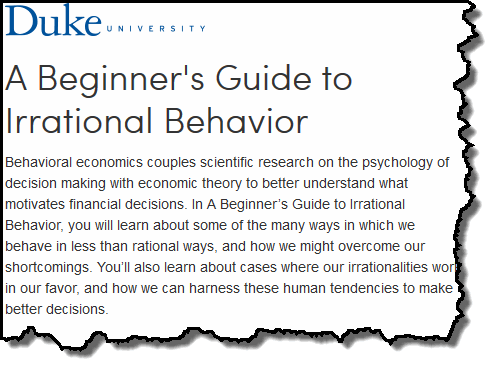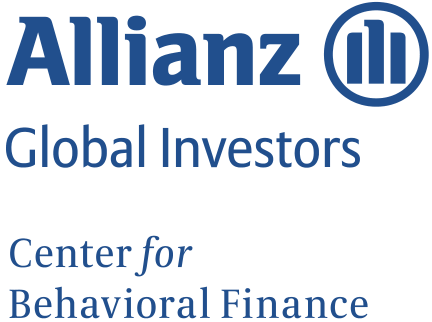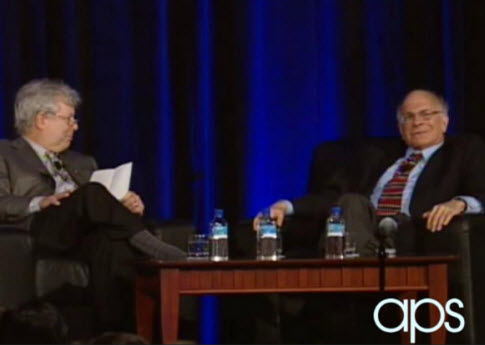Filed in
Conferences
 Subscribe
Subscribe to Decision Science News by Email (one email per week, easy unsubscribe)
XVI FUR (FOUNDATIONS OF UTILITY AND RISK) CONFERENCE

- What: XVI FUR: Foundations of Utility and Risk Conference
- Scope: Deviations from classical decision models
- Submission deadline: March 15
- Erasmus University, Rotterdam, the Netherlands
- June 30 – July 2, 2014
- Website: http://www.eur.nl/ese/fur2014/
Organizing committee:
Aurelien Baillon
Han Bleichrodt
Kirsten I. M. Rohde
Peter P. Wakker
Typical of FUR
FUR is more interdisciplinary than other conferences. Participants include economists, psychologists, mathematicians, management scientists, philosophers, (non)Bayesian statisticians, and other researchers. FUR is the place to meet open-minded scholars from many disciplines.
History of FUR
When the Norwegian Ole Hagen was refused tenure in the 1970s because his work on nonexpected utility for risk was judged unpromising, he was determined to prove otherwise. Together with Maurice Allais (1988 Nobel laureate), he founded FUR in 1982. Using the momentum of Kahneman & Tversky (1979 Econometrica) and Machina (1982 Econometrica), the new models started pervading economics and related disciplines.
As a result, homo economicus has increasingly been replaced by homo sapiens, for risk and for other decision theories. This improved descriptive models and deepened the understanding of normative and prescriptive models. Further momentum came from experimental economics, which strongly improved experimental standards, exposed artifactual biases, and bolstered real ones. These developments have led to the behavioral revolution, with recent advances in nudging (Thaler) and ambiguity (Ellsberg, Gilboa, Schmeidler).
Since Oslo (1982), FUR has been held in Venice (1984), Aix-en-Provence (1986), Budapest (1988), Durham (1990), Paris (1992), Oslo (1994), Mons (1997), Marrakech (1999), Torino (2001), Paris (2004), Rome (2006), Barcelona (2008), Newcastle (2010), Atlanta (2012), and, now, Rotterdam (2014).
We bid you welcome in Rotterdam this summer!
FUR organizing committee
P.s.: Rotterdam is in the top 10 of cities that should be visited in 2014 according to the New York Times:
http://www.nytimes.com/interactive/2014/01/10/travel/2014-places-to-go.html?_r=1
and also according to the Rough Guide:
http://www.roughguides.com/best-places/2014/top-10-cities%
Filed in
Conferences
 Subscribe
Subscribe to Decision Science News by Email (one email per week, easy unsubscribe)
ABSTRACT SUBMISSION DEADLINE WEDNESDAY MARCH 5TH, 2014

What: Advances in Decision Analysis Conference
Where: Georgetown, University McDonough School of Business, Washington DC
When: 16-18 June, 2014
Abstract Submission Deadline: March 5, 2014
We are pleased to announce that registration are now open for Advances in Decision Analysis, the first stand-alone conference organized by the Decision Analysis Society. The conference will be held June 16-18, 2014, hosted by the McDonough School of Business at Georgetown University. This research-focused conference will strengthen and broaden the decision analysis community. The conference aims to promote the development of a body of work fit for the Decision Analysis Journal and the Decision Analysis areas in Management Science and Operations Research. The conference will provide a platform for interdisciplinary discussions, including researchers in statistics, economics, psychology, and other decision- making related disciplines with a prescriptive focus.
We are pleased to announce that Professor Bob Winkler of the Fuqua School of Business at Duke University will offer the opening plenary.
Details on additional speakers, extended abstract submission and registration will be available soon on the conference website: https://www.informs.org/Community/DAS/DAS-Conference
We hope you will join the first Advances in Decision Analysis conference to enjoy a stimulating research conference and the sights of Washington DC!
General Chair: Jason Merrick (Virginia Commonwealth University)
Local Chairs: Robin Dillon-Merrill (Georgetown University), Casey Lichtendahl (University of Virginia)
Steering Committee: Robin Keller (University of California, Irvine), Jim Smith (Duke University), Rakesh Sarin and Kevin McCardle (University of California, LA) Organizing Committee: Yael Grushka-Cockayne (University of Virginia), Victor Jose (Georgetown University), Philippe Delquié (George Washington University)
Conference Hotel
We encourage everyone to stay at the Georgetown University Hotel and Conference Center, 2800 Reservoir Road NW, Washington DC 20052 (adjoining the McDonough School of Business). For reservations and further details: http://www.acc-guhotelandconferencecenter.com/. Mention that you are with the DAS conference and the rate is $189.00 per night.
Submitting Conference Abstracts
We are now accepting abstracts focusing on statistics, economics, psychology, and other decision-making related disciplines with a prescriptive focus. Submissions will undergo a peer-review process. Those not selected for presentation may be invited to present a poster. Submission URL: https://informs.emeetingsonline.com/emeetings/ctbpaperlogin.asp?mmnno=254
General Information
*Submission deadline: Wednesday, March 5, 2014
*Notification of acceptance: March 17, 2014
*Abstract length must not exceed 200 characters (including spaces), and a one page extended abstract in PDF format must also be uploaded. If you choose, you can upload a full paper in PDF form instead of the one-page abstract, but this is not required.
*You are permitted only ONE abstract as a presenting author (speaker). You can be a co-author on other abstracts.
*As the presenting author, you are expected to present the work at the conference.
*All attendees must register and pay the registration fee.
*Early registration deadline is 5/23.
Conference Registration
https://online.informs.org/informsssa/evtssareg.custid?p_event_id=1114
FREE ONLINE COURSE ON IRRATIONAL BEHAVIOR BY DAN ARIELY

Dan Ariely writes:
Hello hello,
I wanted to let you know that I am running A Beginner’s Guide to Irrational Behavior for the second time, starting on March 11th. If you want to take the class again, I would be delighted to have you (and all your friends and family).
Sign up here: https://www.coursera.org/course/behavioralecon
Hope to see you again soon.
Irrationally Yours,
Dan Ariely
Want a teaser? Check out Dan’s teaser video.
Filed in
Conferences
 Subscribe
Subscribe to Decision Science News by Email (one email per week, easy unsubscribe)
ASSOCIATION FOR CONSUMER RESEARCH NORTH AMERICAN CONFERENCE

What: ACR 2014 North American Conference (aka ACR 2014)
When: October 23-26, 2014
Where: Baltimore, MD
Deadline: Friday, March 7, 2014, before midnight Central Standard Time (CST): Deadline for Special Sessions, Competitive Papers, Working Papers, and Roundtables.
Call for Papers: http://www.acrweb.org/acr/public/availability.aspx
Conference website: http://www.acrweb.org/acr/public/index.aspx
Conference email: acr2014@ivey.uwo.ca
We are delighted to welcome you to the 2014 North American Conference of the Association for Consumer Research, to be held at the Hilton Baltimore, from Thursday, October 23 through Sunday, October 26. The conference theme is Back to Fun. It is inspired by a desire to recognize the fun that is inherent in being a consumer behavior scholar and, especially, in being a part of this community. To that end, we will focus on research that inspires passion in its pursuers and field-building sessions that help protect that passion (or re-kindle it) for professors at all career stages. We will embrace the paradox that when we have fun and don’t take ourselves too seriously, we have a better chance at doing seriously rigorous and seriously interesting research.
Baltimore is an eclectic and charming waterfront city. The Hilton Baltimore is across the street from Camden Yards—the award-winning home of the Baltimore Orioles—and just one block off of Baltimore’s famous Inner Harbor that features the National Aquarium, Port Discovery Museum, Chessie (sea monster) paddle-boat and speed-boat rentals, historic parks, street performers, and a bevy of restaurants and bars. Baltimore is served by an international airport (BWI), but is also only a one-hour drive from Washington Dulles International airport (IAD) for those traveling internationally. In other words, Baltimore is fun.
Conference Co-chairs:
June Cotte, Ivey Business School
Stacy Wood, North Carolina State University
Filed in
Jobs
 Subscribe
Subscribe to Decision Science News by Email (one email per week, easy unsubscribe)
SENIOR BEHAVIORAL FINANCE SPECIALIST POSITION

The Allianz Global Investors Center for Behavioral Finance was founded in 2010 with the goal of turning academic research into actionable ideas and practical tools that financial advisors and retirement plan sponsors can use to help their clients and employees make better financial decisions. To respond to growing demand, the Center is creating the role of Senior Behavioral Finance Specialist to work on the communication, presentation and implementation of our programs and to educate internal stakeholders and clients on behavioral finance more broadly.
This position reports to the Director of the Allianz Global Investors Center for Behavioral Finance, though the behavioral finance specialist will collaborate with the Center’s Chief Behavioral Economist, Prof. Shlomo Benartzi, and other academic advisors working with the Center.
Location: New York City, with significant travel requirement.
Key Job Responsibilities
- Serve as behavioral finance subject matter expert for sales and marketing teams and other internal AllianzGI stakeholders.
- Train internal employees on the Center’s behavioral finance programs.
- Present externally at client events and conferences.
- Provide input on the development of the Center’s programs.
- Write shorter pieces and contribute content for presentations.
Qualifications
- PhD in behavioral economics or related field
- Superb written and oral communication skills with ability to synthesize complex information and communicate it in an engaging way.
- Ability to engage effectively with a wide range of people, including senior executives, academics, sales people, and clients of various kinds.
- Capable of balancing priorities of simultaneous projects and demands.
Estimated Break-down of Responsibilities:
- 20% – keeping abreast of academic research and competitive landscape.
- 20% – content development.
- 50% – travel, giving talks, attending client meetings.
- 10% – responding to requests for information, inquiries, fulfilling other internal requirements, etc.
Those interested should contact Sarah Cossa, Allianz Global Investors HR, at Sarah.Cossa@allianzgi.com, and include a resume.
Filed in
Jobs ,
Programs
 Subscribe
Subscribe to Decision Science News by Email (one email per week, easy unsubscribe)
SUMMER SCHOOL ON SIMPLE SOLUTIONS FOR A COMPLEX WORLD, JUNE 10-17, 2014,

What: Summer Institute on Bounded Rationality
For Whom: Grad students and postdocs
When: June 10-17, 2014
Where: Max Planck Institute for Human Development in Berlin, Germany
Application deadline: March 16, 2014
Famous JDM Alumni of this summer school: Many, many
Apply before March 16, 2014 via the online-application form: http://bit.ly/1epf6sb
We invite talented graduate students and post-doctoral fellows to the annual Summer Institute on Bounded Rationality hosted by Gerd Gigerenzer (Center for Adaptive Behavior and Cognition) and Ralph Hertwig (Center for Adaptive Rationality). The Summer Institute will gather distinguished scientists and 35 talented young researchers from diverse backgrounds for a conversation focused on the importance of simple solutions to the complex problems of the modern world.
Participants will be given access to the fundamentals, the methods, and the most recent and cutting-edge research on bounded rationality in various talks and small-group workshops. They and the invited faculty will present their research and learn, practice, and discuss how the simple can outperform the complex. The interactive format of the summer institute includes debate sessions and panel discussions, leaving plenty of room for exchanges between established researchers and fellow young scholars.
PROGRAMM
Planned highlights of the program include talks and workshops by:
Gerd Gigerenzer ++ Ralph Hertwig ++ Thorsten Pachur ++ Henry Brighton ++ Jan Woike ++ Shenghua Luan ++ Mirjam Jenny ++ Uwe Czienskowski ++ Hansjorg Neth ++ Odette Wegwarth ++ Juliane Kämmer ++ Tim Pleskac ++ Jens Krause ++ Peter Todd ++ Florian Artinger ++ Till Grüne-Yanoff ++ Markus Feufel …
COVERED EXPENSES
Participants will be housed in an attractive hotel in the city and will be given a stipend to cover part of the traveling expenses — intercontinental flights will be reimbursed up to 300 EUR (400 USD) while European travel from outside of Germany up to 150 EUR (200 USD).
INTERESTED?
For more details on the Summer Institute and the application process see the website http://bit.ly/1eT6d5f
Feel free to direct questions to us via email: si2014@mpib-berlin.mpg.de
TRYING TO ESCAPE THE LONG TAIL OF THE UNIMPACTFUL

We once heard ‘when you invent a system, you invent the game that plays that system’. We remember this from our time in industry. No matter how you’d choose to compensate salespeople, they’d find the loopholes and exploit them. Academics are no different. Enjoy this Nature News piece “Brazilian citation scheme outed“. The tale takes place in Brazil, but we’ve heard about shenanigans in other countries as well. No matter how you choose to measure academic output, academics will game it.
Filed in
Ideas
 Subscribe
Subscribe to Decision Science News by Email (one email per week, easy unsubscribe)
ENEGRY SAVING STREETLIGHTS THAT BRIGHTEN WHEN THEY SEE YOU COMING
The Dutch love their roadside sensors. We at Decision Science News learned this when we got a big fat speeding ticket at the Choice Symposium in Nordwijk last year. Now those clever Dutch have found another way to make the roads safer, streetlights that brighten up when they see you coming, as discussed in this Salon article. It saves electricity and reduces light pollution, sort of a no-brainer now that the technology is there. The smart lights can even detect a bicycle or a pedestrian.
Here’s a video that shows it in action.
With so much emphasis on behavioral nudges, it is nice to remind ourselves that much can be done by leaving behavior alone and making the everyday environment (which is largely artificial anyway) smarter.
Story H/T Adam Alter.
THALER INTERVIEWS KAHNEMAN

When your field of research is judgment and decision making, it’s not every day you see a 45 minute interview on your topic. Or every week. Or every year. So when we were sent this interview featuring two JDM giants, Richard Thaler and Nobel Laureate Daniel Kahneman, we knew we had to run it, even if it is from 2008.
Enjoy it: who knows when you’ll get to see another interview on judgment and decision-making (aka behavioral economics).
Filed in
Conferences
 Subscribe
Subscribe to Decision Science News by Email (one email per week, easy unsubscribe)
DEADLINE SOON: JAN 15, 2014

Submissions for papers for both the 14th biennial conference on Behavioral Decision Research in Management (BDRM) and The Greater Good pre-conference will close on January 15, 2014.
Please submit via http://bdrm2014.org/bdrm2014-submissions/
BDRM is the leading conference for behavioural research conducted in business schools and will be held at London Business School, London, UK, from on July 17-19, 2014. We encourage submissions of original work in all areas of behavioural research including, but not limited to, decision making, consumer behaviour, experimental and behavioural economics, decision analysis, behavioural finance, organizational behaviour, negotiation, behavioural strategy, behavioural operations research, behavioural accounting, and medical and legal decision making.
We are glad to announce the following keynote speakers:
George Loewenstein, Herbert A. Simon Professor of Economics and Psychology, Carnegie Mellon University
David Halpern, Director of the Cabinet Office Behavioural Insights Team (the ‘Nudge Unit’)
“The Greater Good” pre-conference in partnership with the Journal of Marketing Research will focus on behavioural decision research that can contribute to understanding and fixing pressing social needs. The pre-conference will take place at London Business School on July 17, 2014 and will end before the BDRM evening welcome reception.
The conference website http://bdrm2014.org/ provides all conference related information, including the Calls for Papers. For any additional queries please email us at bdrm2014@london.edu.
SEE YOU IN LONDON IN THE SUMMER OF 2014!
Simona Botti, London Business School
David Faro, London Business School
Yuval Rottenstreich, Rady School of Management, UC San Diego
 Subscribe to Decision Science News by Email (one email per week, easy unsubscribe)
Subscribe to Decision Science News by Email (one email per week, easy unsubscribe)










